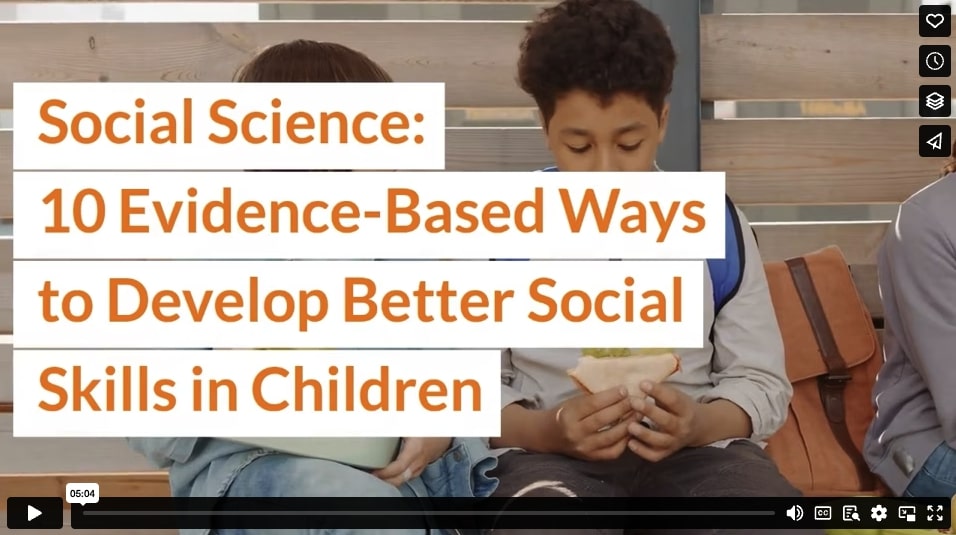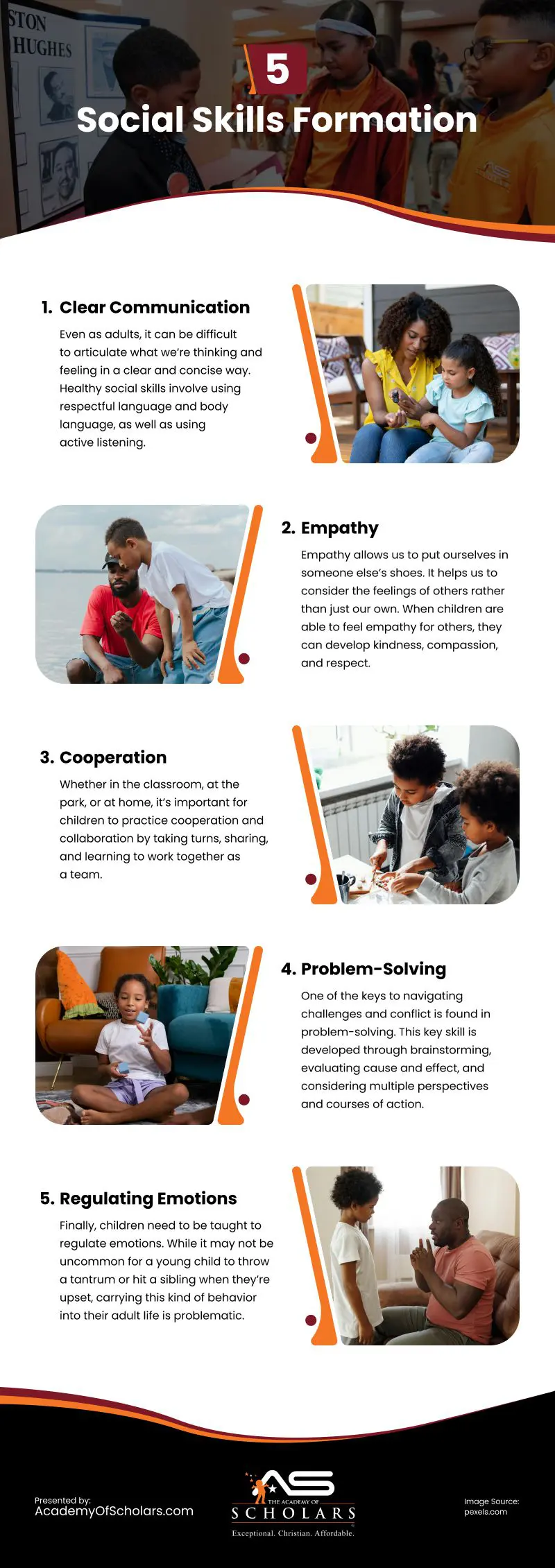Let’s be honest–even as adults, most of us would probably say we wish we had better social skills. Sure, you might be a social butterfly or the most eloquent and charismatic personality. But chances are, you still have those moments after a social interaction where you wish you would have said or done things differently.
You can give your kids an advantage by fostering their social skills at a young age. These “soft skills” will be critical for healthy relationships, academics, and career success.
The term “social skills” refers to a set of learned and developed behaviors that help a child relate to the world around them. These skills include the ability to solve problems, communicate, show empathy, collaborate, and regulate emotions. Social skills develop over time, and the journey for one child will look different from another child’s. Diverse interactions and experiences can go a long way in helping children develop these critical skills.
What are the most important social skills for a child to master?
1. Clear Communication
Even as adults, it can be difficult to articulate what we’re thinking and feeling in a clear and concise way. Healthy social skills involve using respectful language and body language, as well as using active listening.
2. Empathy
Empathy allows us to put ourselves in someone else’s shoes. It helps us to consider the feelings of others rather than just our own. When children are able to feel empathy for others, they can develop kindness, compassion, and respect.
3. Cooperation
Whether in the classroom, at the park, or at home, it’s important for children to practice cooperation and collaboration by taking turns, sharing, and learning to work together as a team.
4. Problem-Solving
One of the keys to navigating challenges and conflict is found in problem-solving. This key skill is developed through brainstorming, evaluating cause and effect, and considering multiple perspectives and courses of action.
5. Regulating Emotions
Finally, children need to be taught to regulate emotions. While it may not be uncommon for a young child to throw a tantrum or hit a sibling when they’re upset, carrying this kind of behavior into their adult life is problematic. Children should learn that there are appropriate and inappropriate ways to communicate and express emotions.
What are proven ways to develop better social skills in children?
1. Practice Taking Turns
Play games that require children to wait patiently for their turn and watch as their peers have a turn. You can also set a timer and allow children to take turns with a popular toy, explaining that when the timer goes off, it’s time to hand it to the next person.
2. Pretend Play
One of the best ways for children to develop social skills is to let their imaginations run wild. Playing pretend allows them to put themselves into another character, interact with others in new ways, and play out real-life situations in a fun way.
3. Use Videos and Music
When teaching healthy social skills to your child, don’t forget that the internet is full of excellent sources and learning materials. It’s okay to use technology to your advantage! Introduce your child to videos about healthy social skills or listen to music that helps children remember the rules of social behavior.
4. Model and Imitate
Children are most likely to replicate the behavior they see, and this especially goes for social behavior. The best way to teach effective social skills to your child is to model them yourself.
5. Tell a Story
Stories transport us to new places, allow us to experience new things, and help us to put ourselves into different situations. Reading and hearing stories helps children see things from another point of view, consider cause and effect, and develop empathy. When you read, ask questions that will help them connect with the story. Questions like, “How do you think the character feels about that?” or “What would you do in this situation?” can help your child develop better social skills to put into practice in real life.
6. Give Opportunities for Teamwork
The ability to work well with others is a social skill that will help your child succeed in school and the world beyond. But, this skill definitely doesn’t come naturally. Children learn to work with others as they engage in collaborative team-building activities. This can include group projects in the classroom, a shared art project, or games like relay races.
7. Talk About Appropriate Social Behavior
While there are many great ways to show and teach your child appropriate social behavior, it’s also important to talk about it plainly and openly. Make sure your child knows what is expected of him or her in social situations and what kind of behavior is appropriate or inappropriate.
8. Play Social Skills-Targeted Games
Don’t forget to make learning fun! These games (and more) help your child develop social skills in a creative way:
- Simon Says
- Staring contest
- Emotion charades
- Story improv
- Expression mimicking
- Multiplayer board and card games
- Scavenger hunt
9. Put it Into Practice
Now that you’ve given your child the understanding and foundation needed to build their social skills, it’s time to put them to the test! Go on that playdate, join the T-ball team, or get out in the community together. The best way to build social skills is to practice, practice, practice!
Looking for an Atlanta Christian school that emphasizes social skills development along with sterling academics? Contact The Academy of Scholars for a tour.
Video

Infographic
Social skills develop over time and vary for each child. Diverse interactions and experiences are crucial for their development. Learn about the most important social skills for children in this infographic.

